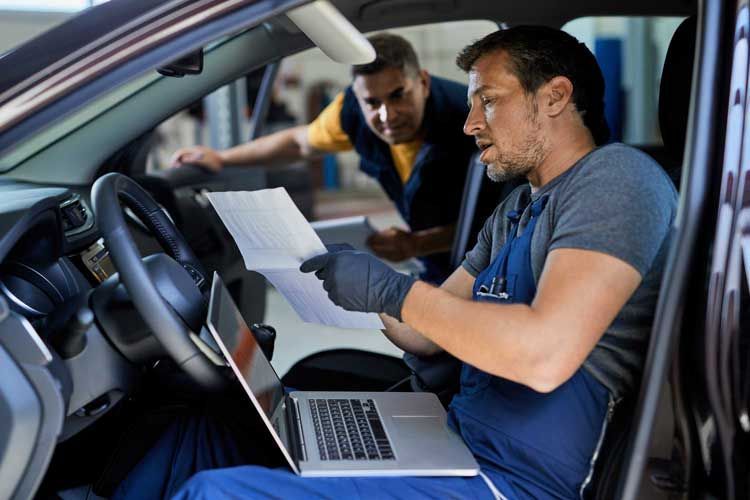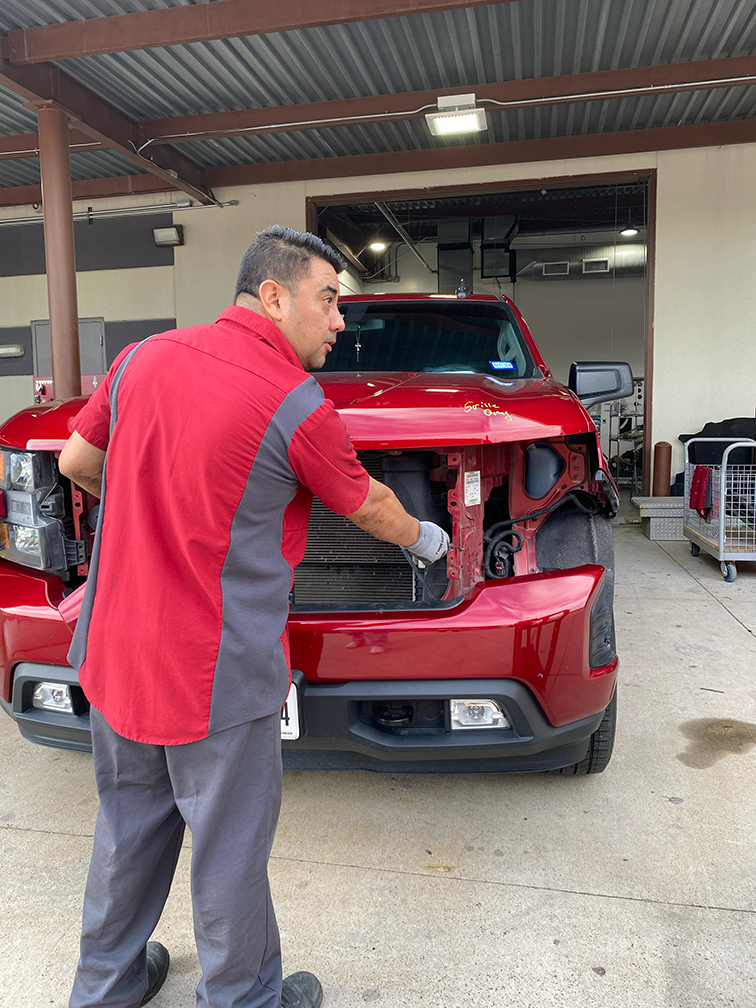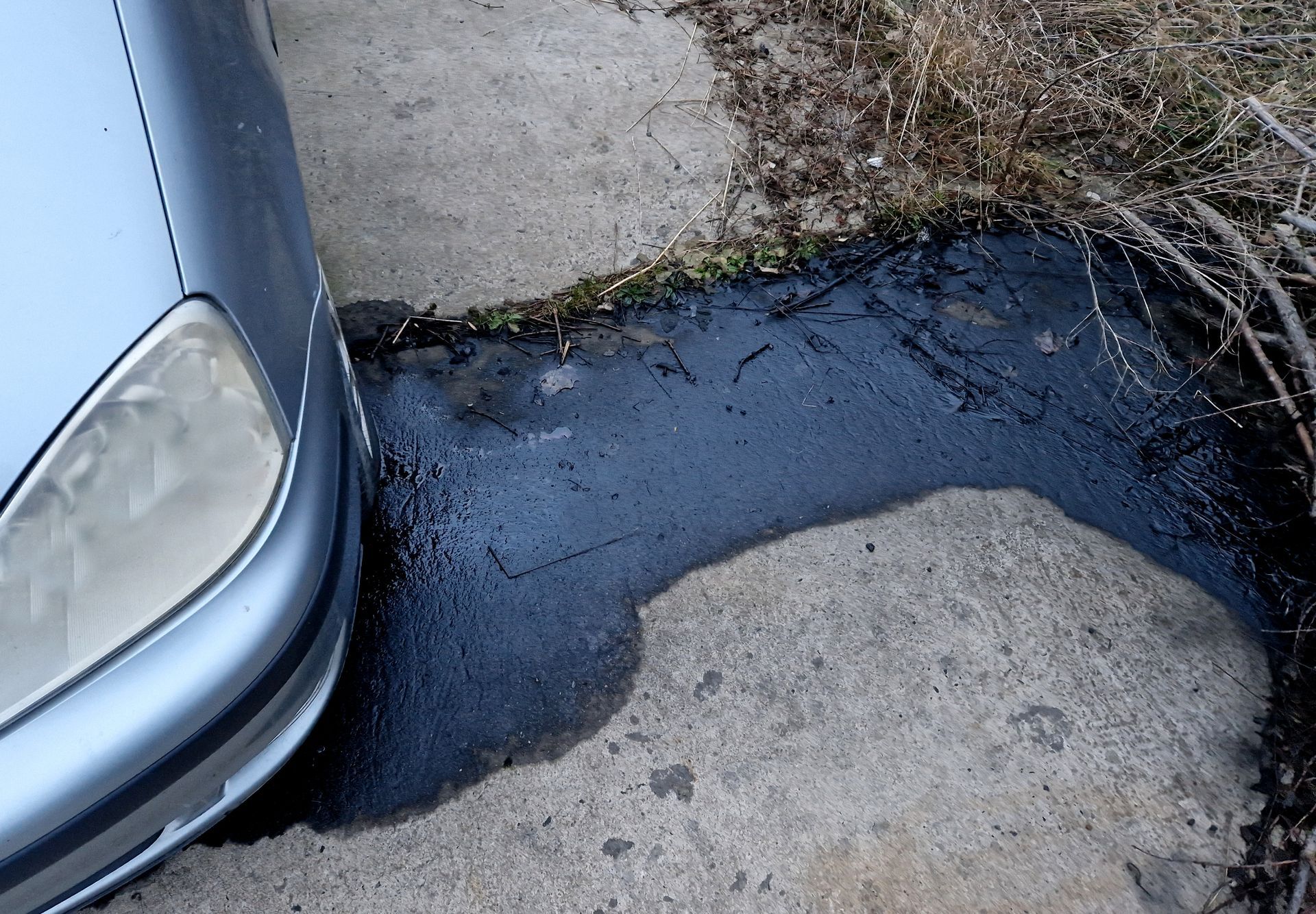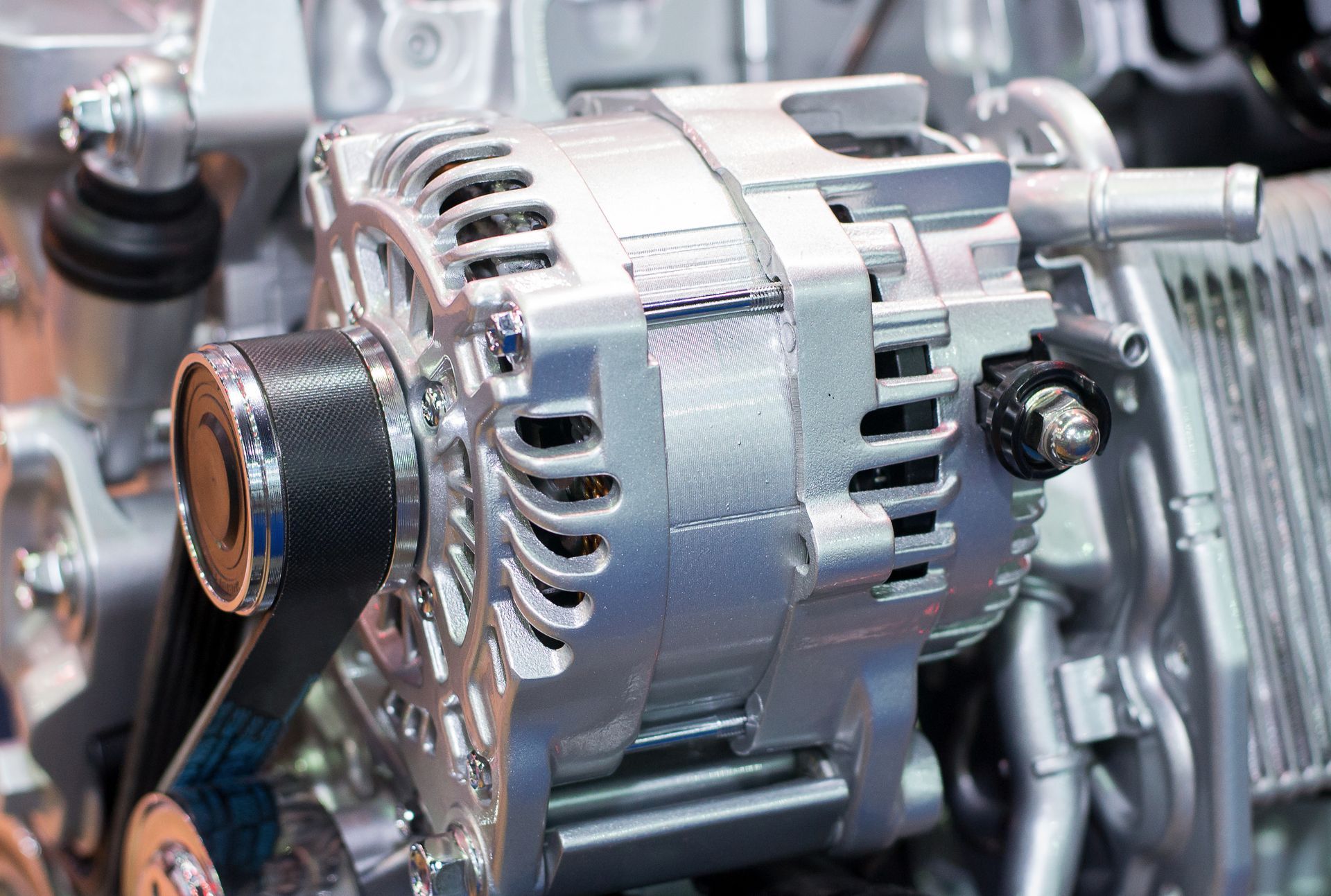One of the best ways to save money on auto repairs—and to keep yourself safer on the road—is to learn how to recognize your car’s “red flags” before they turn into major problems. While some issues are obvious, like an engine that won’t start at all, many are more subtle and can be easy to miss if you’re not paying attention. By spotting these warning signs early, you can schedule necessary repairs or maintenance right away, avoiding costly breakdowns, dangerous driving conditions, and bigger headaches down the line.
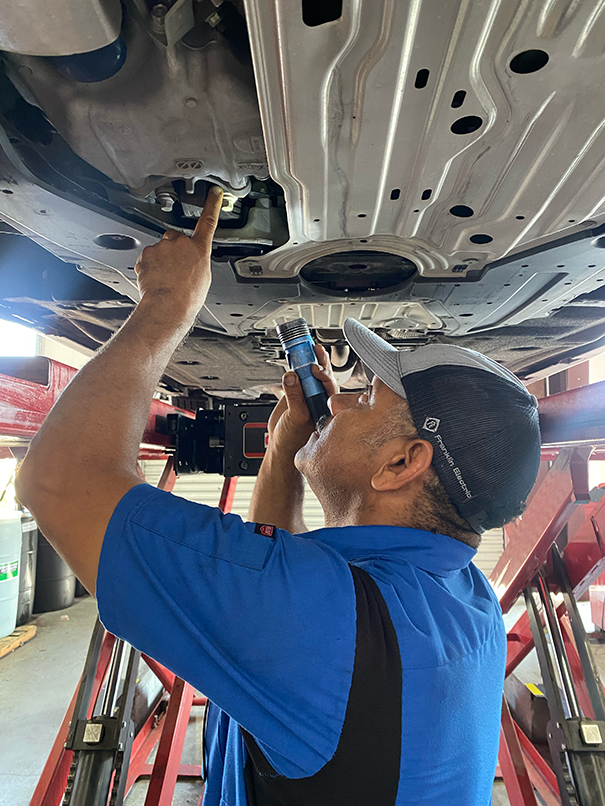
Unusual Sounds
Cars often communicate with us through sounds. If you start hearing squeaks, rattles, or humming noises that weren’t there before, it’s time to take notice. While certain squeaks may come from something as simple as a loose belt, other sounds can signal more serious concerns. For instance, a squealing or grinding noise when you apply the brakes is an almost sure sign that your brake pads or rotors are wearing out. Rattling noises might point to loose exhaust parts or suspension components. Meanwhile, humming at higher speeds could indicate a problem with wheel bearings.
Although it’s tempting to turn up the radio and ignore these disturbances, catching them early could save you a bundle. Brake problems, for example, can escalate quickly if the pads wear down to metal and start damaging the rotors. What might have been a relatively inexpensive pad replacement can turn into a more expensive rotor replacement or brake system overhaul. So, whenever you notice a strange noise, don’t dismiss it—your car is giving you a heads-up that something may need attention.
Dashboard Warnings
Those little lights on your dashboard are more than just decorative illuminations. They’re the first alerts your car provides when something goes awry. Modern vehicles come equipped with a variety of sensors to keep tabs on everything from engine performance to tire pressure. Consequently, if you see a dashboard light—whether it’s the dreaded “Check Engine” indicator or a tire pressure monitoring light—it’s crucial to investigate sooner rather than later.
Ignoring these alerts could mean driving with a serious issue that grows more severe over time. The “Check Engine” light, for instance, can be triggered by relatively simple issues like a loose gas cap or a faulty spark plug, but it can also signal more complex problems with the catalytic converter or oxygen sensor. By having a mechanic read the diagnostic trouble codes, you can address these problems before they balloon into major (and expensive) repairs. In other words, if a light comes on, consider it your car waving a flag that says, “I need some attention.”
Vibrations or Pulling
Your car’s steering and suspension systems are designed to provide a smooth ride. When you start feeling vibrations through the steering wheel—or worse, if the car begins pulling to one side—something in the system is out of balance or alignment. Vibrations could be related to unbalanced tires, which is a relatively simple fix involving wheel balancing or rotating. However, more severe shaking might suggest worn-out suspension components, such as shocks, struts, or tie rods.
Pulling, on the other hand, can be a sign that your wheels are misaligned. It can also indicate uneven tire pressure or, in some cases, more complex issues in the braking system—like a stuck caliper. It may seem like a minor inconvenience to constantly adjust the steering wheel to go straight, but misalignment can cause accelerated tire wear, putting you at risk for a blowout. Additionally, if there is a braking component issue, that problem could compromise your stopping power, leading to unsafe driving conditions. If you notice either vibrations or pulling, get it checked immediately.
Leaks
Leaks are never a good sign. Whether it’s a small puddle in your driveway or a drip you spot when your car is parked, you should not ignore any unusual fluid under your vehicle. Motor oil leaks are among the most common, often recognizable by a dark brown or black spot on the ground. Brake fluid leaks might appear light brown or yellowish and can be extremely dangerous, as they compromise your vehicle’s ability to stop effectively. Transmission fluid generally has a reddish hue, while coolant is typically green, orange, or even pink, depending on the type.
Each fluid in your car has a vital role, so a leak can quickly escalate into a major problem if left unaddressed. For instance, low or leaking brake fluid can lead to brake failure, while low engine oil can result in significant engine damage. Keep an eye on your driveway and garage floor; if you notice any unexpected wet spots or stains, call a trusted mechanic as soon as possible. Acting quickly can save you thousands of dollars and keep your car safely on the road.
Other Warning Signs to Consider
While the four key points above are some of the most noticeable red flags, there are other clues to watch for as well. A sudden drop in fuel efficiency could suggest an engine or emissions issue, while a change in exhaust color might indicate burning oil or antifreeze. If you detect unusual smells—like a sweet scent that might point to coolant leaks or a burning smell that could signify overheating—take them just as seriously as any warning light or noise.
Additionally, pay attention to how your car feels when shifting gears. If gear changes become clunky or delayed, you could be facing an early sign of transmission trouble. Likewise, any hesitations or stalling when accelerating might indicate a problem with the fuel delivery system, spark plugs, or other ignition components. The bottom line: trust your instincts. If your car is behaving differently, it’s time to investigate.
If your car is showing any of these signs—unusual sounds, dashboard warnings, vibrations, pulling, or leaks—don’t wait until the problem escalates into a costly or even dangerous situation. Regular check-ups and prompt attention to minor problems are the keys to avoiding major breakdowns and saving money in the long run.
At Elite Auto Experts, we’re currently offering $100 OFF any service or repair over $490. Take advantage of this limited-time deal to get your car inspected, diagnosed, and repaired by professionals who are dedicated to keeping you safe on the road. Schedule your appointment today and protect both your vehicle and your wallet! A little proactive care now can spare you from bigger, more expensive issues later. Safe driving!
